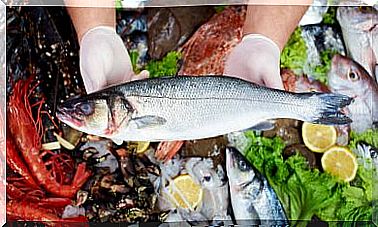Is Vegetable Protein Enough For An Athlete?
It is often said that vegetarian and vegan diets can cause a protein deficit. This, added to the demanding nutritional needs of someone who practices sports, may mean that vegetable protein is insufficient for athletes.
What are proteins?
Proteins are molecules made up of chains of amino acids present in the body with structural function. They also act as enzymes, enhancing chemical reactions in the body, or as hormones or neurotransmitters with a regulatory function.
In addition, they function as transport molecules. For example hemoglobin, which carries oxygen throughout the body. They can also be found as part of the immune system.

In the body there is a great variety of proteins that are made up of only 20 amino acids, of which 8 are essential. This means that the body is unable to create them by itself, so we must provide them through food.
The essential amino acids are: valine, leucine, isoleucine, phenylalanine, tryptophan, threonine, methionine and lysine.
Complete proteins
A complete protein is considered to be one that provides us with all the essential amino acids. Usually proteins of animal origin. On the other hand, proteins of plant origin are considered incomplete proteins because they are not capable of providing us with those 8 necessary amino acids.
For example, legumes are lacking in lysine, while cereals are lacking in methionine. In this way, it seems clear that a vegetarian is unable to provide all the protein he needs.
But the truth is that it is much easier. Simply combining these foods they can obtain a complete protein of the same biological quality or better than that of animal origin.
In the case of ovolacteous vegetarians -egg and dairy consumers-, another option would be to combine the proteins that can be obtained through vegetables with others present in products derived from animals.
What is protein quality?

Apart from obtaining the necessary types of proteins, we must evaluate the protein quality of the products we consume. This is based on understanding the difference between the amount of protein present in the product composition table and the amount that your body actually uses.
To do this, we will take into account three factors:
- Digestibility: it is the percentage of protein that is absorbed compared to that ingested. In general, this parameter is higher for proteins of animal origin and lower for vegetables. Especially if the vegetable products are rich in fiber, which hinders the action of gastric juices and enzymes in digestion.
- Biological value: it is the total percentage of amino acids that form a protein that is retained and used by the body. Foods of animal origin tend to have more essential amino acids and, therefore, are of higher biological value.
- Net use of proteins: it is the proportion of protein consumed and retained by the body.
In short, the main problem found is that vegetable protein has fewer essential amino acids than that of animal origin. This is easy to solve by combining foods such as cereals and legumes during the day.
Main sources of vegetable protein

When it comes to consuming protein from plant sources, some foods are especially valuable at a nutritional level:
- Soy: this food is very rich in high quality vegetable protein. In fact, it is one of the sources of vegetable protein that provides all the amino acids that the body needs. In addition, its derivatives, such as tofu or soy milk, are perfect for making many recipes.
- Seeds: especially sunflower seeds, pumpkin seeds and pine nuts. These contain amounts of protein that can easily supplement the meat. On the other hand, hemp seeds should also be highlighted, which provide 10 grams of complete and easily digestible protein per ounce (about 28 grams).
- Nuts: walnuts, pistachios or almonds are other products with a high content of high quality vegetable protein. In addition, they help protect the cardiovascular system.
- Cereals: Quinoa, for example, is high in protein. The only downside to these products is their lack of lysine and tryptophan.
- Legumes: in some, like lentils, we can find good amounts of valine and lysine.
- Vegetables: in addition to proteins, they will provide us with fiber, minerals and vitamins.
Conclution
Any athlete can follow a vegetarian or vegan diet without falling into a lack of protein. You just have to be careful to consume a variety of sources of vegetable protein to obtain all the necessary amino acids.








